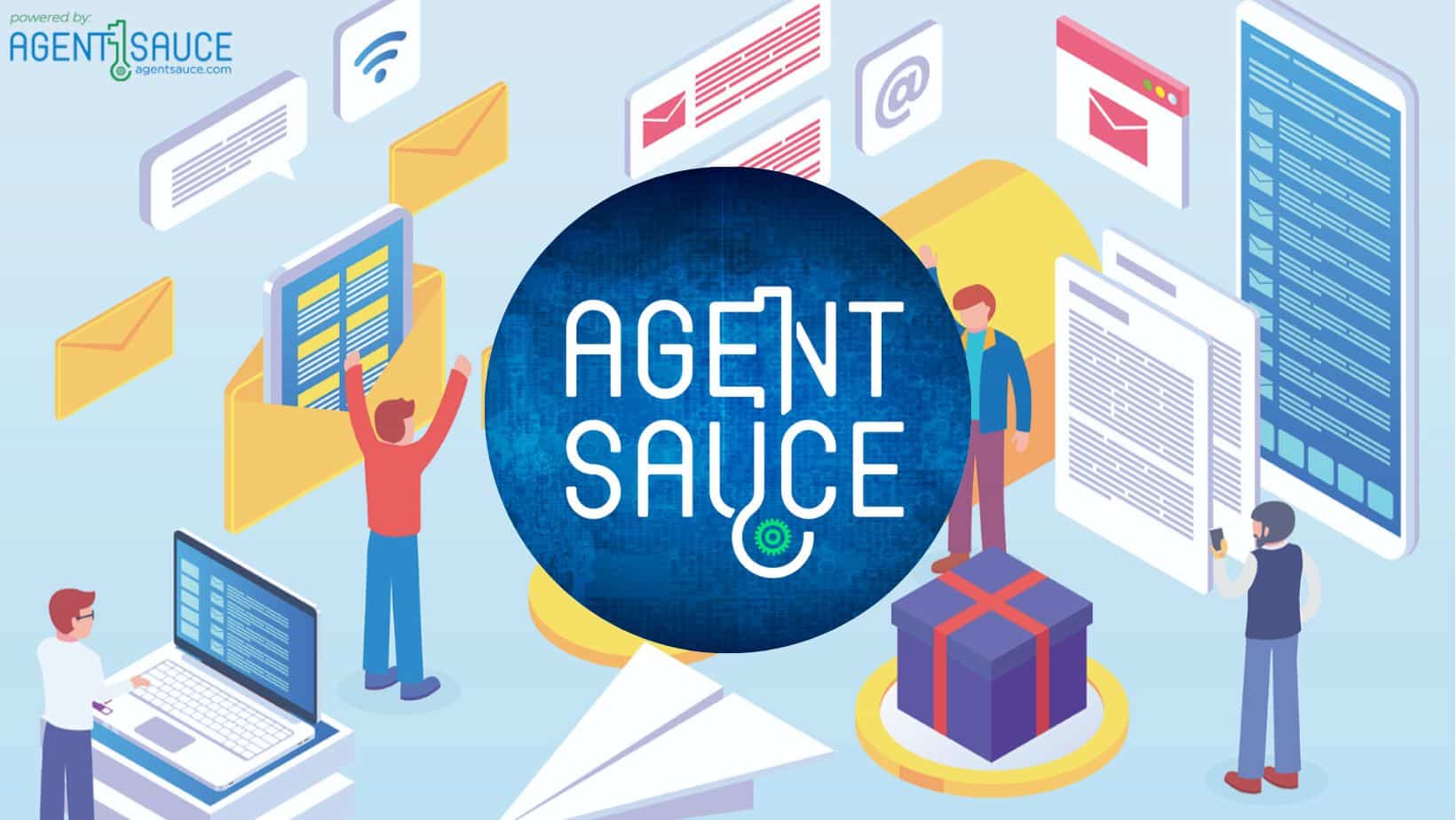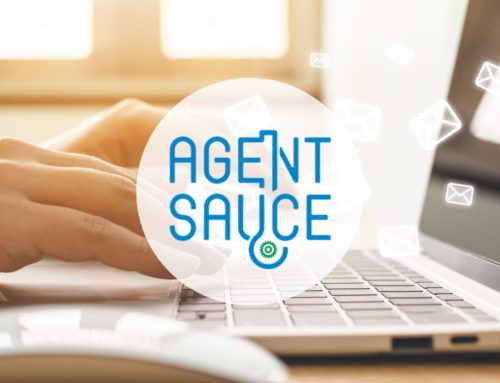Podcast Deliverability
- Email Deliverability will improve if you prune your list from time to time.
- Send emails that relevant to your sphere.
- Don’t buy an email list! It just doesn’t work.
Real Estate Email Deliverability Podcast Transcript
Adam Small:
Hello and welcome to the Real Estate Marketing Minute. I’m your host, Adam Small. With me today we have our esteemed technology advisor, Mr. Douglas Karr. How are you Doug?
Douglas Karr:
Wow.
Adam Small:
It’s a new title, every time you’re here, Doug.
Douglas Karr:
You’ve got to set the bar low for your listeners.
Adam Small:
We have some guy that might know something about something.
Douglas Karr:
Yeah there you go.
Adam Small:
Yeah.
Douglas Karr:
See now I’ll start now … I can’t even say it. Now I’ll sound smarter. I’ll be smarter.
Adam Small:
That’s right George. All right. So today, we’ve talked about email quite a bit in the past I think, but one of the things that we’ve only touched on here and there is real estate email deliverability with email marketing.
Douglas Karr:
Yeah.
Adam Small:
So today I was thinking we could talk about real estate email deliverability and define what it is and why it’s important and how you do a better job of increasing it.
Douglas Karr:
Yeah, that’s great. A lot of people don’t even realize that if you, whether you’re sending it out of your own Gmail account or whether you’re using a service to send email on your behalf, that there’s a number of stops along the way that could happen. So real estate email deliverability is basically the study, the science, whatever of whether an email makes it in front of somebody’s face in their inbox.
Adam Small:
Not in the spam box, but the inbox.
Douglas Karr:
Exactly. In their inbox. So deliverability didn’t always use to be that way. Deliverability used to be just whether it made it to the ISP, which is the internet server.
Adam Small:
Right.
Douglas Karr:
So if I sent something out of let’s say Agent Sauce, did it make it? Did I get literally a code back from Google that they received the email and it was okay? But the problem there is that Gmail, Microsoft, all of the rest of the platforms then spam filtering and everything else.
Adam Small:
Right. They implemented a bunch of spam filtering techniques and people create their own rules sometimes too.
Douglas Karr:
Exactly.
Adam Small:
You know, so-
Douglas Karr:
And so over time now is they, like Google and Microsoft, Yahoo, I think, I’m trying to think of some of the other majors. They actually have their own kind of domain reputation that they follow.
Adam Small:
Right.
Douglas Karr:
And so they’ll see, okay, it’s coming from Agent Sauce, they’ve sent us good stuff in the past, we’ll allow-
Adam Small:
Go ahead and allow that in.
Douglas Karr:
Yeah. We’ll go ahead and allow them in. Then people started spoofing. So basically faking that they were sending from your accounts. So then we had two different technologies kind of arise. SPF, which is sender policy framework. Then the other one is DMARC, but I can’t tell you what that stands for. D M A R C. But basically what those do is they are able to validate that the sending IP address is actually belonging to the company that is in the from address.
Adam Small:
Right.
Douglas Karr:
So it’s just one way to stop the spoofing and everything. The people don’t realize that when that first email, so if Agent Sauce, let’s say you’re sending out 1,000 emails, the first email that reaches them, the first thing that they’re going to do is say is, “Did this email come from Agent Sauce? Like it says it did?” So they’re going to check this SPF record, the DMARC record and make sure that the domain matches the internet protocol address, the IP address that it came from.
Douglas Karr:
They’re just going to check the server and make sure that it [crosstalk 00:03:33].
Adam Small:
So they’re just validating that it is actually coming from somebody that’s allowed to send it.
Douglas Karr:
Exactly. Because a lot of people, spoofing was a big problem where people were saying that they were sending on behalf of PayPal or whatever and tricking people. That’s kind of the first step is, did it come from the actual person that said they were sending it?
Adam Small:
Right.
Douglas Karr:
Then the second step was, okay, well it is them, but do these people have a good reputation? So now, does Agent Sauce belong to any spam lists? There’s a ton of different companies out there that monitor and create blacklists and stuff. Are the IP addresses on blacklists? So if you’re sharing an IP address with another company.
Adam Small:
Because it can be domain or IP address, right?
Douglas Karr:
Yeah. The second one is that reputation piece. Okay, yes, they pass the reputation piece, now the next thing is, okay, now we’re going to actually look at the email. And some flags in the email will make it go to the junk folder.
Adam Small:
Certain words are more likely to make it to the junk folder than others.
Douglas Karr:
And nobody really knows that algorithm.
Adam Small:
I think that they’re probably different for every ISP.
Douglas Karr:
Yeah.
Adam Small:
They’re different.
Douglas Karr:
There’s a spam assassin, a kind of standard out there that people work from, but everybody’s kind of got their own [inaudible 00:04:49].
Adam Small:
They all tweak it their selves. And a lot of that’s actually based on the content that they’re receiving, because a lot of the users may have a unique tinge to the content type they receive.
Douglas Karr:
Exactly.
Adam Small:
So they kind of tweak it towards that.
Douglas Karr:
Then sometimes they’ll just test. They’ll say, we’ve never received an email like this before, so we’re going to put one in the junk folder for this guy and one in the inbox for this lady-
Adam Small:
And see if it gets flagged.
Douglas Karr:
And see whether they flag it.
Adam Small:
Yeah.
Douglas Karr:
And if they flag it, then we’re going to block all of the rest of them coming in.
Adam Small:
Right. It’s like an email AB testing, right?
Douglas Karr:
Yeah.
Adam Small:
Yeah.
Douglas Karr:
So you guys can start to figure out real quick that it’s a beast and sometimes those of us in the industry wonder how we get any emails into the inbox. Because even though-
Adam Small:
That’s for sure.
Douglas Karr:
Even though you absolutely subscribed and absolutely said that you want this email, sometimes it won’t go to your inbox.
Adam Small:
Right. And that’s why you’ll see a lot of people when you’re subscribing to a list they’ll say, “Hey, make sure to whitelist this address so that it can definitely make it to your inbox.”
Douglas Karr:
Yeah. Most of the time in an email client, if you have the person in your contact list they’ll let it go to your inbox. But it’s still-
Adam Small:
It’s a nightmare, right?
Douglas Karr:
It’s just a muddled mess.
Adam Small:
It’s a funny thing, because depending on the stats that you look at from an real estate email deliverability perspective as an ESP, with Agent Sauce sending emails for our customers. It can range generally speaking anywhere from 20% up to 50% or 70% even depending on the email, the type, how good the list is and all that stuff. I think most people say somewhere from 20% to 30% is the average for the real estate industry insofar as email opens go.
Douglas Karr:
Right.
Adam Small:
But it would be an amazing thing to actually know what that percentage of emails that just aren’t even making it to the inbox are, so that we could then lower that open rate against that number instead of-
Douglas Karr:
A lot of people, if your list is like 100,000 people, almost every time you have an real estate email deliverability partner. And that’s what those services do. 250ok is one. They basically monitor how many of your emails, they give you a what’s called a seed list, then they’re able to see how many actually made it to the inbox. But-
Adam Small:
I was talking actually knowing. I understand the concept of the seed list and measurement and all that. We get that, we do that.
Douglas Karr:
Yeah.
Adam Small:
But I was just talking about knowing the actual number that didn’t make it so that I could say, “Well, you know, we got kicked out of this many and we delivered this many and that’s your open right there. You know?
Douglas Karr:
The problem still is, is that tomorrow you’ll send another email-
Adam Small:
It’ll be different.
Douglas Karr:
It’ll be different.
Adam Small:
I know.
Douglas Karr:
That’s the big problem in the industry. For people listening, where this can get really frustrating obviously is you’re using a service and you’re blaming that service.
Adam Small:
Right.
Douglas Karr:
And it’s not the service.
Adam Small:
It may not be the service.
Douglas Karr:
If the service does 100% of everything that they’re supposed to do as a good email sender. So like you said, monitoring for bounces.
Adam Small:
DKIM, SPF records, DMARC policies.
Douglas Karr:
All of that stuff.
Adam Small:
Making sure what they’re sending isn’t spam.
Douglas Karr:
If you do 100% of that, you still can’t guarantee that it’s going to get to the inbox. And that’s where I’ve heard people call up companies before and be like, “You’ve got a problem. My email’s not getting it.” And you’re kind of talking to the wrong person. He needs to talk to, if it was Yahoo that blocked it, you need to talk to Yahoo. If it’s Gmail, talk to Gmail.
Adam Small:
Right. That’s not to say that there’s this huge number, this huge percentage. Because even with your services like 250ok where they’re monitoring what that deliverability rate. If you’re doing everything right, then you’re still getting 97% 98% 99% of your emails through.
Douglas Karr:
The great thing on your stuff is that most of your senders, I think all of your senders are small senders.
Adam Small:
Yeah. We’ve got a few that have many thousands, but most of them are small.
Douglas Karr:
It’s typically 100,000 or above on a single email send.
Adam Small:
On a single email, right.
Douglas Karr:
That’s not even the list.
Adam Small:
Right.
Douglas Karr:
That’s when these guys start really flagging and testing and everything else. The good thing is, accumulatively Agent Sauce sends millions and millions of emails.
Douglas Karr:
So you guys have a reputation and that’s the great thing. You don’t want to be trying to send a hundred emails out of your downloaded program that you bought for $9.95.
Adam Small:
Right, right.
Douglas Karr:
Because you’re going to get blocked and put on a blocklist and everything else.
Adam Small:
And you’re right, the cumulative reputation helps out a lot. Then the other thing that is a great factor there is that even if we do get a bad apple, which happens from time to time, their impact on our network from a deliverability perspective-
Douglas Karr:
Is tiny.
Adam Small:
Is very minute and easily recoverable. I would say that we catch that probably 95% 99% of the time. We’re able to then correct that very quickly.
Douglas Karr:
And there’s tools of course that the ESP uses like feedback loops and everything else that Adam can get these reports as they happen. Where if you’re sending off of some junk system-
Adam Small:
A bad list or a-
Douglas Karr:
You don’t get anything.
Adam Small:
Right. You’re not going to get that feedback if you’re not doing the right thing. And without that feedback, the ESPs will shut … Not the ESPs, but the ISPs, the Google’s and stuff, they’ll just shut you down entirely. They won’t allow you in at all.
Douglas Karr:
The things that you guys want to do, the listeners want to do though is, they do want to maintain their list well. So if somebody hasn’t clicked in a year or opened in a year-
Adam Small:
Get rid of it.
Douglas Karr:
Stop. People get these metrics in their head. “Oh, I grew my subscribers by this much, or I grew, you know this.” It doesn’t matter how much you grew, what matters is whether people are opening and clicking and actually contacting you.
Adam Small:
Right.
Douglas Karr:
So old subscribers and people turn over email addresses all the time. I read a while back that it’s every six months. The thing is, you want to keep a fresh email list, get people off of there that aren’t-
Adam Small:
Keep it clean.
Douglas Karr:
Don’t go buy a list.
Adam Small:
No buying lists is bad.
Douglas Karr:
Yeah.
Adam Small:
They just-
Douglas Karr:
Most of them have traps in the list.
Adam Small:
They’ve got the trap email addresses that signify it’s a spam list.
Douglas Karr:
Yeah.
Adam Small:
Without fail, every time I’ve seen somebody do it, the balances are horrendous, the spam reports are worse. I will say early on that we had somebody do that with our system and it shut down the IP for probably two months.
Douglas Karr:
Yeah.
Adam Small:
It took a long time to re-prime that IP address and get it back to work and where deliverability was good. So we’ve gotten a lot better about that ourselves. But that was just such a bad list that it all over was just bad. So now we’ve got a lot of things to kind of help catch that too.
Adam Small:
Anyhow, we’ve talked about what real estate email deliverability is and why, and some of the things that you can do to increase it. Doug, any final thoughts listeners?
Douglas Karr:
That’s it. Just maintaining a good relationship with your ESP and maintaining a good list is the best that you can do.
Adam Small:
Right, right. All right. Good enough. Well, thanks so much for listening to the Real Estate Marketing Minute. We do appreciate it. And if you like what you hear, don’t forget to like, and or subscribe to our services. Thanks. Bye.








[…] Sharing local events via email is a great way to show someone that you are knowledgeable about current happenings in the area. You can even reach out to the planners to let them know you want to share their event and request to add them to your email list. […]